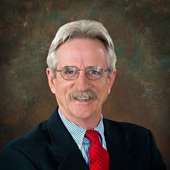- Move on: Dems should focus on own platform (5/22/19)
- Major investigation seeks origin of collusion charge (5/18/19)
- Golfer teaches a lesson in overcoming adversity (5/15/19)
- Higher ed costs for illegal immigrants shouldn’t fall on the taxpayer (5/11/19)
- Dems ignore how great the economy is doing (5/8/19)
- Indonesian election ballot hand-count turns deadly (5/4/19)
- Survey says: Life moves fast, enjoy every day (5/1/19)
Opinion
Rural, urban split will be big divide
Sunday, July 15, 2007
A seasoned politician once told me the greatest political split in our society was not between Republicans and Democrats nor liberals and conservatives. He said the real battleground in the future would be the political struggle between the urban and rural areas. I have long suspected he was right.
A recent report shows that globally, most of humanity will live in cities as early as next year. That means that 3.3 billion people are urban dwellers and that number will climb to 5 billion in just 20 short years.
With that amazing mass, the urban areas will gain political clout. And since urban centers offer concentrations of low-income residents and an exploding immigrant population, change is on the horizons for those of us who reside in the rural lands. I strongly suspect most of us won't welcome those changes with open arms.
The report on this growing trend offers much more alarming news however. There is virtually no migration from rural areas to the urban centers. The growth is coming from a higher birth rate in the cities and that aforementioned immigration increase. Urban centers almost exclusively breed extremism in the form of religious fanatics and other fringe elements, according to the report. When cities fail to meet the needs of these growing populations, the report says religious beliefs "tend to become extreme."
My politician friend was speaking in terms of Missouri but the urban-rural issues reach far, far beyond our mere borders. And when the day arrives that the urban populations outvote the rural areas, policy on a national level will be driven by interests that are radically different than our interests. And it will be the values we hold dear that will surely suffer.
Not surprising, the report says that many smaller communities aim to keep these poor and immigrant populations out by limiting housing and other necessities. As expected, the report faults that policy and says that the current urban populations would be tremendous assets for smaller areas. I take exception with that finding on several grounds. First and foremost is the fallacy that simply attracting more residents means that you have an expanded workforce. Many of those urban dwellers are uninterested in work. We have made it so.
Though job prospects may be much greater in urban centers, as a rural resident I see many more negatives than positives in urban life. If this report is even close to accurate, the gap in culture, lifestyle and philosophy between rural and urban areas will only continue to grow wider in the years ahead.
I'm unsure what that means. But it doesn't bode well in my book.


